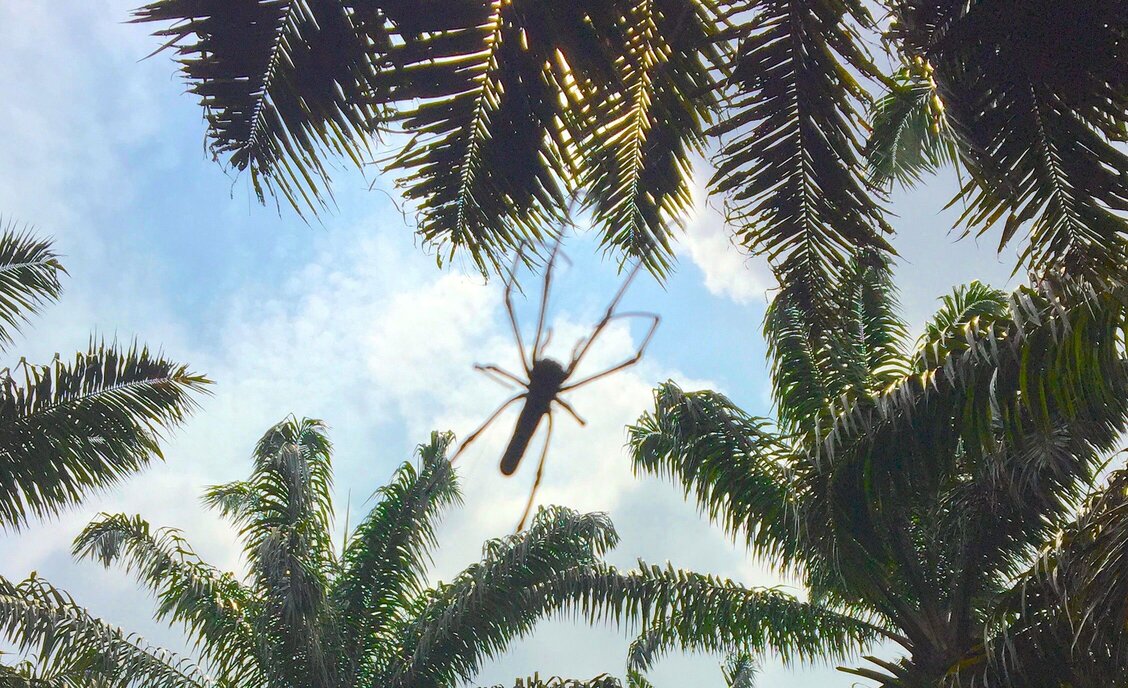
New study suggests biodiversity impact in multiple microhabitats
Our study is a useful baseline that showcases how replanting of oil palm using recommended strategies may impact biodiversity.
Michael Pashkevich
Oil palm is the most traded vegetable oil in the world, featuring in products ranging from instant noodles to lipstick. It has long been the source of huge controversy as plantations – most of them in Southeast Asia, often replace tropical rainforests which are rich in biodiversity, depriving species of their habitats.
However, although levels of biodiversity are much lower than in forests, mature oil palm plantations have been found to support a wide range of generalist species. After 20-30 years, many are being replanted to boost productivity. The impact of replantation on biodiversity has been little studied.
A new study finds that replanting, even with measures taken to lessen ecosystem impact, may also decrease the biodiversity of arthropods, including spiders, with negative consequences for the ecological chain and potential implications for crop yield.
The study, Assessing the effects of oil palm replanting on arthropod biodiversity, published in the Journal of Applied Ecology today, shows that while arthropod numbers remain similar after replanting of oil palm, total arthropod and spider community composition changes, with spider numbers and species richness falling in some microhabitats. Given spiders perform an important role in pest control, the researchers say this could impact ecosystem processes, such as pest control, in second-generation oil palm plantations, with potential implications for yield.
The researchers studied an industrial plantation in Riau, Indonesia to assess the impacts of replanting over an eight-year period on arthropods. Replanting was carried out using current recommended strategies, which included staggering replanting events, retaining mature oil palm buffers and planting a cover crop immediately after replanting.
Lead author Michael Pashkevich [2017], who is completing his PhD in the Insect Ecology Group at the University of Cambridge’s Department of Zoology, said: “Whilst it is somewhat encouraging from a management perspective that recommended replanting strategies maintain overall arthropod abundance, the changes in composition and spider biodiversity that we observed may impact ecosystem processes, such as pest control, in second-generation oil palm plantations, with potential implications for yield.
“Overall, our study is a useful baseline that showcases how replanting of oil palm using recommended strategies may impact biodiversity. Moving forwards, it will be useful to understand how individual replanting strategies support biodiversity during replanting events. Encouragingly, such research is already taking place. Ultimately, this research will allow better understanding of the ecological impacts of replanting on existing oil palm plantations.”












